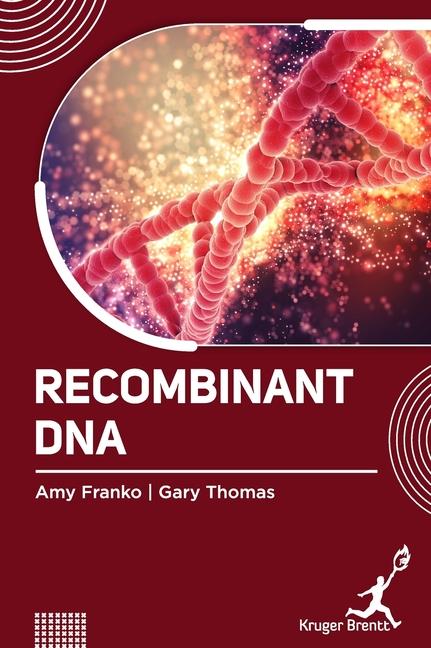
Zustellung: Do, 26.06. - Di, 01.07.
Versand in 2 Wochen
VersandkostenfreiBestellen & in Filiale abholen:
1. Fundamental Principles of Recombinant DNA Technology:
-Introduce the basic concepts of recombinant DNA (rDNA) technology, including the creation and manipulation of DNA sequences from different sources to produce genetically modified organisms or products.
2. Key Techniques and Tools:
-Discuss the essential techniques used in rDNA technology, such as restriction enzymes, ligases, cloning vectors (plasmids, viruses), polymerase chain reaction (PCR), and gel electrophoresis. Highlight advancements like CRISPR-Cas9 for precise genome editing.
3. Applications in Biotechnology and Medicine:
-Explore real-world applications of recombinant DNA technology in various fields, including the production of insulin, vaccines, genetically modified crops, and therapeutic proteins. Address its role in gene therapy and personalized medicine.
4. Ethical, Legal, and Social Considerations:
-Examine the ethical, legal, and societal implications of recombinant DNA technology, such as concerns about genetic modifications, biosafety, and the impact on biodiversity and ecosystems.
5. Case Studies and Emerging Trends:
-Provide case studies showcasing the successful use of recombinant DNA in research and industry. Discuss emerging trends, such as synthetic biology, bioengineering, and the development of next-generation genetic tools.
-Introduce the basic concepts of recombinant DNA (rDNA) technology, including the creation and manipulation of DNA sequences from different sources to produce genetically modified organisms or products.
2. Key Techniques and Tools:
-Discuss the essential techniques used in rDNA technology, such as restriction enzymes, ligases, cloning vectors (plasmids, viruses), polymerase chain reaction (PCR), and gel electrophoresis. Highlight advancements like CRISPR-Cas9 for precise genome editing.
3. Applications in Biotechnology and Medicine:
-Explore real-world applications of recombinant DNA technology in various fields, including the production of insulin, vaccines, genetically modified crops, and therapeutic proteins. Address its role in gene therapy and personalized medicine.
4. Ethical, Legal, and Social Considerations:
-Examine the ethical, legal, and societal implications of recombinant DNA technology, such as concerns about genetic modifications, biosafety, and the impact on biodiversity and ecosystems.
5. Case Studies and Emerging Trends:
-Provide case studies showcasing the successful use of recombinant DNA in research and industry. Discuss emerging trends, such as synthetic biology, bioengineering, and the development of next-generation genetic tools.
Produktdetails
Erscheinungsdatum
01. Januar 2025
Sprache
englisch
Seitenanzahl
306
Autor/Autorin
Amy Franko, Gary Thomas
Verlag/Hersteller
Produktart
gebunden
Gewicht
748 g
Größe (L/B/H)
254/178/19 mm
ISBN
9781787154506
Bewertungen
0 Bewertungen
Es wurden noch keine Bewertungen abgegeben. Schreiben Sie die erste Bewertung zu "Recombinant DNA" und helfen Sie damit anderen bei der Kaufentscheidung.









